Lake Arbi is truly the heart of Elva because most of the educational and cultural life of the town is concentrated around it. The main street and the centre of the town are situated to the south of the lake, in the southeast corner there are the beach and the central square, the Cultural Centre with a conference and exhibition hall and the local tourist information centre. You can find here the Municipality of Elva, the Hobby and Training Centre, our skate park and the sports and playgrounds. The building of the primary school with a public library and the new Sports Centre are situated on the western side of the lake. In the northwest corner there is our song festival grounds. On the north shore of the lake the Music School is hidden in the shade of a pine forest. Just opposite the schoolhouse there used to be a ski jumping ramp, which will be replaced by a new snow centre.
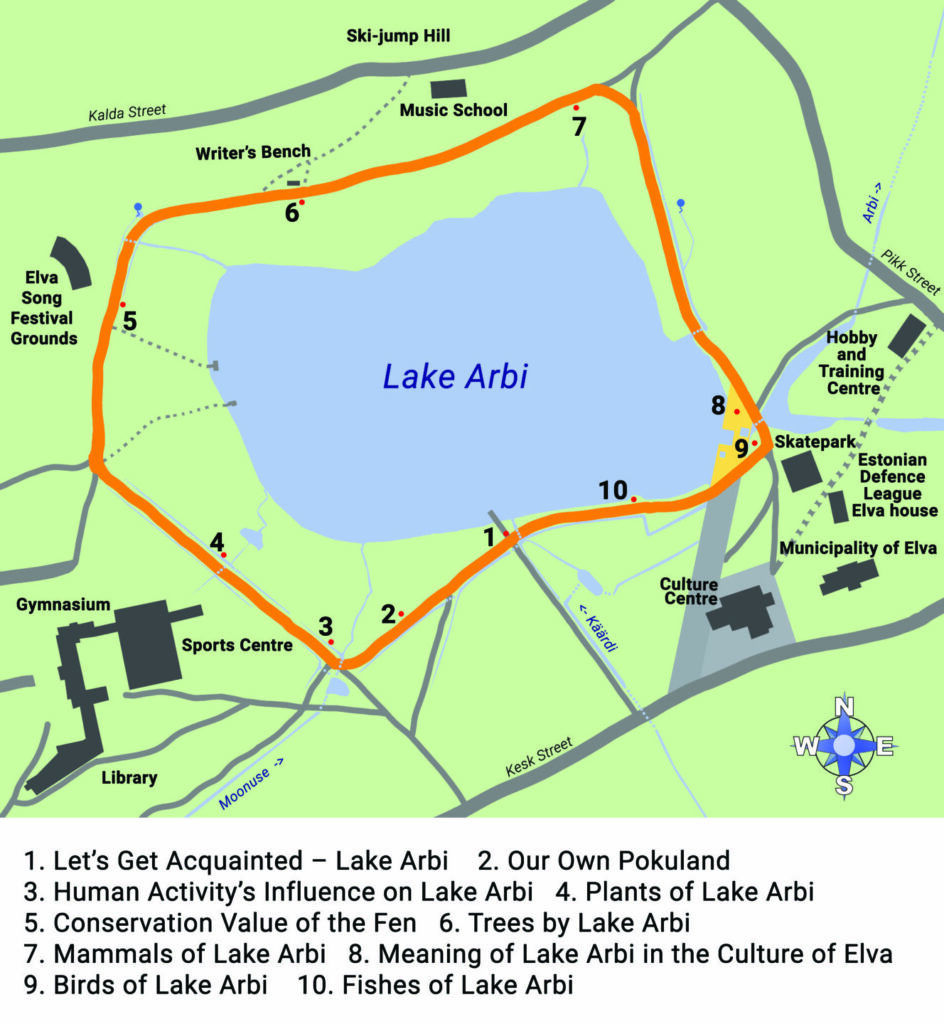
The development of Elva began with the construction of Uderna post office on Tartu-Riga military road under the Swedish rule. Tartu-Riga railway, built in 1888, gave the next significant stimulus to the development of the settlement. The land here belonged to the three manors – Konguta, Meeri and Uderna, with contact of their borders at the post office. Half a kilometer east of the lake, on the lands of the manor of Meeri, Arbi farm was located, after which Lake Arbi got its name. The beginning of Elva as a summer resort dates back to 1890, when the owner of the manor of Meeri, O. Seydlitz had several simple summer houses built under the pines on the northern shore of Lake Arbi.
The railway connection with Elva gave the people of Tartu an opportunity to spend a day beside the beautiful lakes with warm water in the middle of the pine forests. This opportunity was often used by the academic members of Tartu University as well as by the creative people, who found Elva inspiring. Later many holidaymakers settled here permanently, and at the beginning of the 20th century the popularity of Elva as a summer resort grew. The main magnet for holidaymakers was neighbouring Lake Verevi and its sandy shore. The professors of the University of Tartu were first to establish their summer homes, and later holidaymakers from all over Estonia and even from Sweden and Finland joined. During the Soviet era, Elva became a tourist destination for musicians, scientists and artists from Moscow and Leningrad, who spent the whole summer with their family here. The little town of 6,000 inhabitants welcomed a total of up to 10,000 holidaymakers in some summers.
Many creative people are connected with Elva. The best known are the writers Jaan Kärner (1851-1958) and Hugo Raudsepp (1853 1952), poets Ado Reinvald (1847-1922), Felix Kotta (1920-1963), a poet, literary critic and translator Ain Kaalep, an honorary citizen of Elva (1926- 2020); an artist and member of the Estonian art association “Pallas” Eduard Kutsar (1932-1970), who depicted Lake Arbi (at that time called Elva Väikejärv) in many of his paintings. Born in Elva, an actor, director and dramatist of Tartu Vanemuine Theatre Leopold Hansen (1879-1964) gave a lot to enliven the life of Elva. For example, it was him, who came up with the idea to build a walking trail around the lake, started in the 1960s.
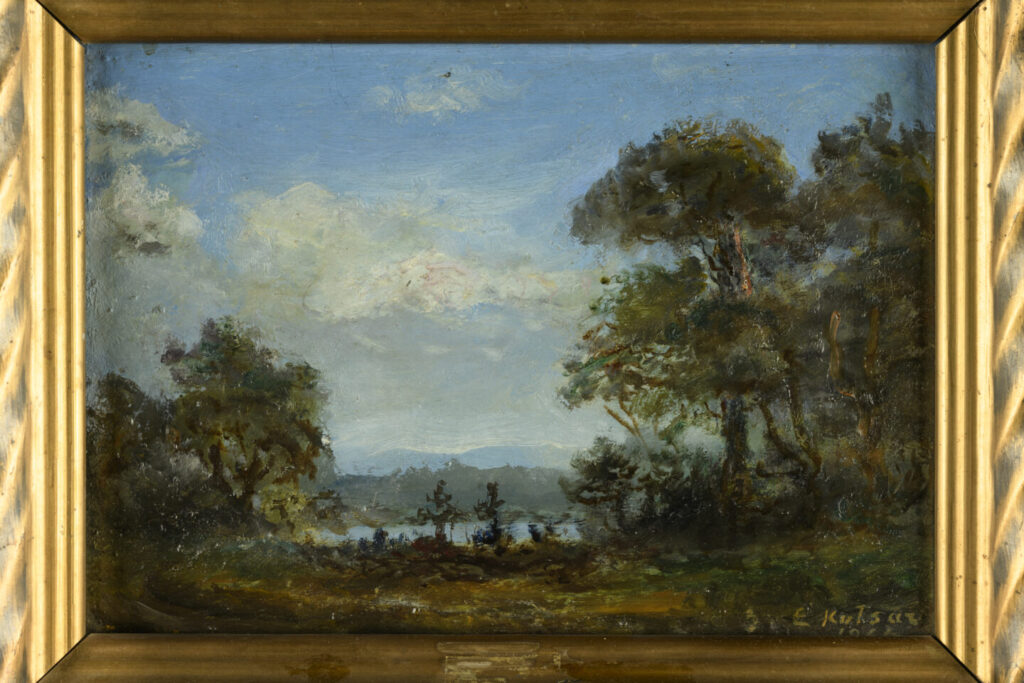
Many dignified creative people, scientists and cultural figures have lived and live in Elva nowadays. Right here, under the pines in Kalda Street, lived a literary critic and professor, honorary citizen of Elva, Karl Muru (1927-2017). The choir leader and music teacher Maimu Sirel (1930-2014) and the long-time head teacher of the Music School Uno Kodu also lived in the same street. The home of the Kuresoo family was also in Kalda Street. The father Uno Kuresoo (1927-2005) was a long-time teacher of the Estonian language and literature at the local secondary school. Both sons became natural scientists: Andres Kuresoo (1954-2014) was a well-known ornithologist, and Rein Kuresoo is a biologist – a nature conservationist, a founder of the Estonian Fund for Nature, and an essayist.
Elva is also a town fond of music. Throughout different times choirs have been active here, and concerts and folk festivals take place on Elva song festival grounds in summer.The composer Eduard Oja (1905-1950), composer and choir leader Kalju Kenner (1929-1924) lived and worked here. The choir leader and teacher Ants Sööt (1936-2013) and the Estonian concertina legend Aivar Teppo (1958-2017) were born in Elva. An interesting fact: the bell of our clocktower plays at noon and at midnight a piece of music from “Golden Beach”, created by Aleksander Läte and the lyrics written by Ado Reinvald.
The sand valley on the western shore of Lake Arbi has become a place of great celebration. The first local song festival was held here in 1923. A stage was built there, later to be rebuilt several times. Elva song festival grounds has hosted both local and national song festivals for many years, even the beginning of Estonian rock festivals was in Elva – in 1972 the first of them was held there.
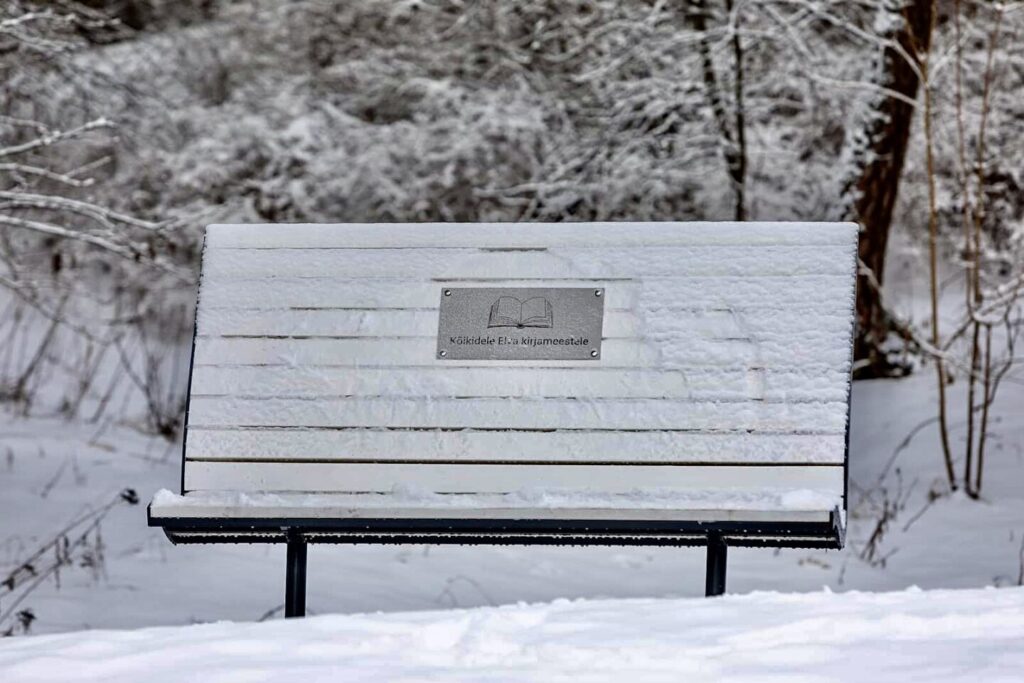
To commemorate the writers and poets associated with Elva, there is a Writers’ Bench on the northwestern shore of Lake Arbi, and memorials to choir and dance leaders by Elva song festival grounds. In the central square between the Cultural Centre and the lake is an oak tree planted by the fourth Estonian President Toomas Hendrik Ilves.
Lake Arbi is also central to the town’s sporting events. For decades (1967-1987), Elva Sports School was located in the current swimming area of Lake Arbi, now Elva’s new Sports Centre has been located on the opposite shore of the lake, near the primary school building since 2020. Every year St. George’s night race around the lake is held, and Arbi is the starting and finishing point of several running and cycling marathons. In winter there are ice tracks on the lake. Ants Antson (1938-2015), the Estonian speed skater and Olympic gold winner (1964 Innsbruck), once trained here. At that time the only full-size (400m) skating track in Estonia, where Estonian Championships and Estonian-Latvian speed skating competitions could be held, was on Lake Arbi. Richard Anton (1908-2002), the soul of sport of Elva, took care of Arbi ice tracks. The legendary cycling coach of the Sports School, Jüri Kalmus, worked here and trained our track cycling racer Erika Salumäe, who has won two Olympic gold medals (1988 Seoul, 1992 Barcelona).
In the pine forest behind the lake was Elva ski jumping ramp, where the Nordic combined skiers Ago Markvardt, Rain Pärn, Illimar Pärn, Andrus Ilves – the father of Kristjan Ilves, one of the best Nordic combined skiers in the world today, have trained. Tõnu Haljand was the coach of Elva Nordic combined skiers for almost two decades (1945-1997). He was also a top competitor himself, who won medals of all colours at the USSR championships. In 2022 the collapsing Elva ski jumping ramp was demolished. Instead of it a new jumping complex with three ramps: 30m, 15m and 10m is planned to be built. Snowtubing, floodlit running and skiing trails are included.
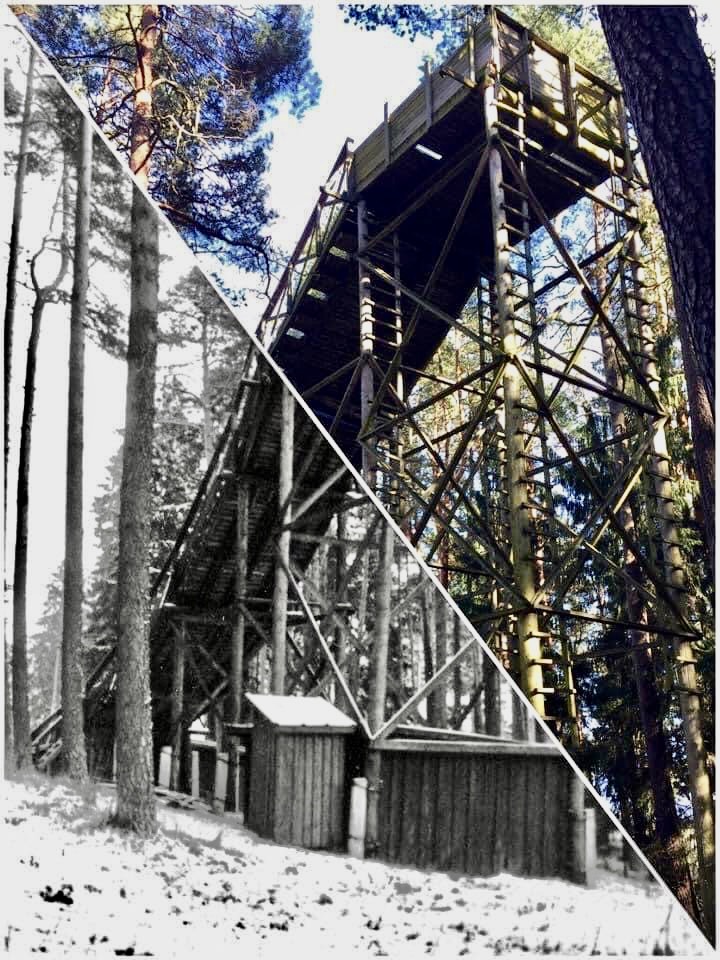
In recent years, Lake Arbi has become a popular holiday destination for both the residents of Elva and the visitors. In 2020 the front square of the Cultural Center and the promenade extending to the lake were completed. The well-maintained recreation area has attracted many walkers as well as bathers, who prefer the quieter place to the crowded Verevi beach.
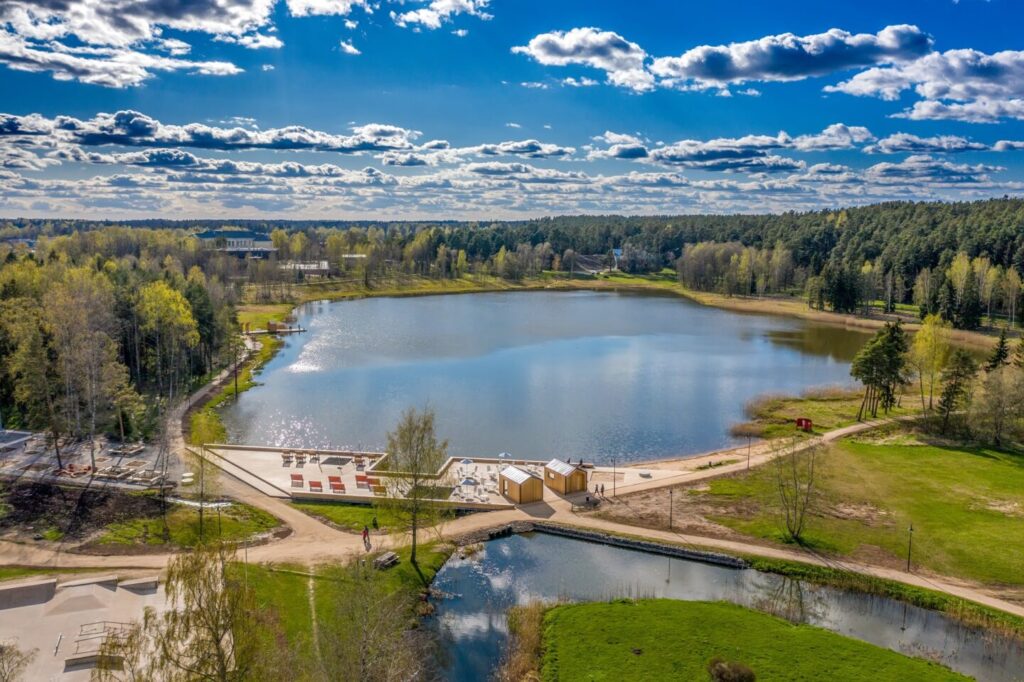
We wish you fascinating scenery and the joy of discovering the local natural values while walking around Lake Arbi. We also hope that the pearl of nature in the heart of Elva will inspire you!
Authors: Krista Noorkõiv, Arvo Järvet, Leelo Suidt, Anneli Aan, Inga-Inna Kalmus